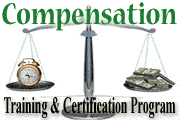What Are The Most Common Challenges Of Compensation Planning?
Compensation planning can pose various challenges for organizations, ranging from internal issues to external market dynamics. Some of the most common challenges and concerns include:
- Market Competitiveness

- Budget Constraints
- Legal Compliance
- Internal Equity
- Employee Expectations
- Benefits Management
- Talent Retention
- Globalization
What Are The Key Components Of Compensation Plan Administration?
Compensation plan administration involves several key components to ensure that employee compensation not only helps attract and retain employees, but is effectively managed and aligned with organizational goals. These components typically include:
- Compensation Philosophy and Strategy:
This sets the overarching principles and goals of the compensation plan, such as attracting and retaining talent, motivating performance, and ensuring internal equity and external competitiveness.
- Job Analysis and Evaluation:
Understanding the roles within the organization through job analysis and evaluation helps determine the relative worth of each position, which forms the basis for compensation decisions.
- Market Analysis:
Conducting regular market analysis involves benchmarking compensation against industry standards and competitors to ensure that the organization's pay rates remain competitive.
- Salary Structure Design:
Designing a salary structure involves grouping similar jobs together based on their value to the organization and assigning pay ranges to each group. This structure provides a framework for making salary decisions and ensures consistency and fairness across the organization.
- Base Pay Determination:
Determining base pay involves setting the initial salary for employees based on factors such as their qualifications, experience, performance, and the organization's compensation structure.
- Variable Pay Programs:
Variable pay programs, such as bonuses, incentives, profit-sharing, and commission plans, provide additional compensation based on individual or group performance, organizational results, or other predetermined criteria.
- Benefits Administration:
Benefits, such as health insurance, retirement plans, paid time off, and other perks, are an integral part of the total compensation package. Administering benefits involves managing enrollment, compliance, and communication with employees.
By effectively managing these key components, organizations can develop and administer compensation plans that attract, retain, and motivate employees while supporting the overall strategic objectives of the organization.
Recommended Training Courses




